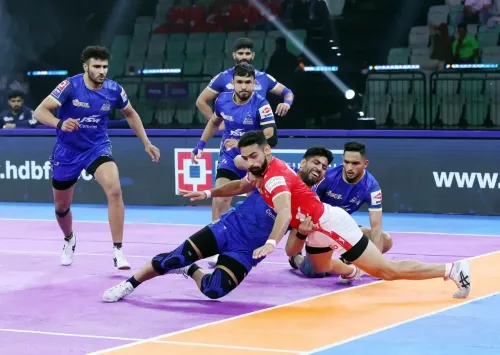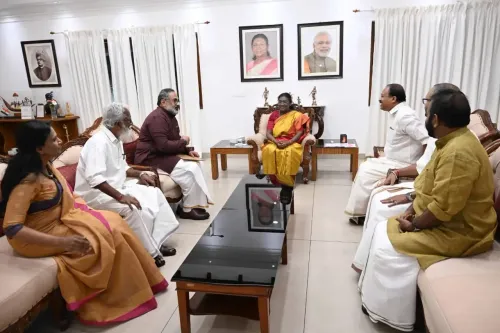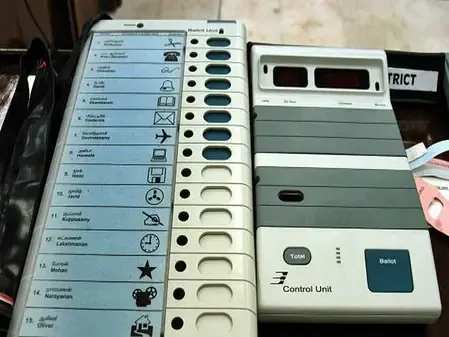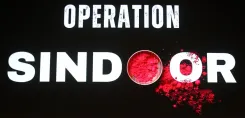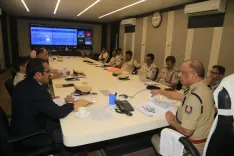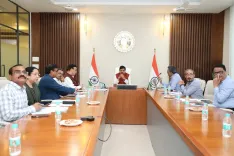Did Naresh Meena Secure Bail in the Raj School Tragedy Protest Case?
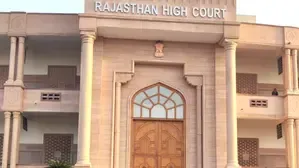
Synopsis
Key Takeaways
- The Rajasthan High Court granted bail to Naresh Meena amidst discussions on the right to protest.
- Meena was arrested for participating in protests following a tragic school incident.
- The court questioned the legality of criminalizing peaceful demonstrations.
- Public outrage continues over negligence in school infrastructure.
- The incident has sparked broader discussions about civil rights.
Jaipur, Sep 4 (NationPress) The Rajasthan High Court has granted bail to Naresh Meena, who was detained for participating in protests following the tragic incident at a Jhalawar school, where seven children tragically lost their lives.
During the hearing, Justice Ashok Kumar Jain raised a critical question: can a peaceful sit-in protest be classified as a criminal act?
Naresh Meena was taken into custody on July 25 while demonstrating outside SRG Hospital, Jhalawar, after a portion of the Piplodi government school building collapsed.
His attorneys, Fatehram Meena and Rajneesh Gupta, contended that Naresh merely joined an ongoing local sit-in and was wrongfully accused of disturbing public order.
The day after his arrest, the medical superintendent of the hospital filed a complaint claiming interference with medical services, including the movement of ambulances and ICU personnel. This complaint led to Naresh's re-arrest on July 26.
During the court proceedings on Thursday, the prosecution opposed bail, alleging Meena had a criminal history.
In response, his legal team pointed out that he had been acquitted in 12 cases, asserting that the remaining charges were politically driven.
The government also mentioned that Meena had previously been granted conditional bail in relation to the Samravata violence incident.
However, the court challenged the rationale behind his arrest, emphasizing that criminalizing peaceful protests undermines democratic freedoms.
The bench concluded that a peaceful demonstration cannot be considered a criminal offense, thereby approving Meena's bail application.
The Jhalawar school disaster occurred on July 25 due to the collapse of a government school building following heavy rainfall, inciting widespread public outrage.
Local residents and political figures have called for accountability, accusing the government of negligence in maintaining school infrastructure. Naresh Meena's arrest further fueled public anger, with opposition leaders decrying it as an effort to stifle dissent.
In the days following the tragedy, the Rajasthan High Court took suo motu cognizance of the school building collapse, labeling the incident as 'heart-wrenching'.


